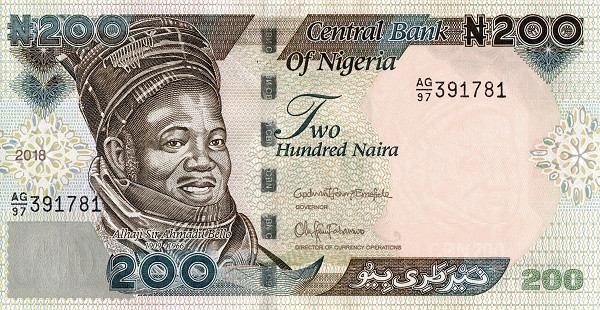A cross section of Lagos residents have said that the extension of the validity of the old N200 note has brought some relief to them.
The Central Bank of Nigeria(CBN) on Oct. 26, 2022 announced the introduction of the redesigned N200, N500 and N1,000 notes into the economy.
However, since the new notes came into circulation on Dec.15, Nigerians have struggled to access it from Automated Teller Machine (ATM) points of banks.
President Muhammadu Buhari, in a national broadcast on Feb.16, said that the old N200 note would remain a legal tender till April 10.
Buhari sympathized with Nigerians over the difficulties in accessing the new Naira notes and said his administration would continue to assess the implementation of the cash swap policy.
According to him, the extension is to ensure that Nigerians are not unnecessarily burdened.
Correspondents of the News Agency of Nigeria (NAN) who checked the situation on Mainland and Island areas of Lagos, reported that after the government directive, most banks’ ATMs were loaded with the old N200 notes.
They also lauded the government’s directive on the old N200 notes as legal tender till April 10.
They, however, implored government to reconsider its position on the N500 and N1,000 notes to reduce tension on economic activities.
A trader, Mr Isioma Okebunor, said that while the old N200 notes were very much in circulation and trade was ongoing, many lacked the technological know-how of depositing old N500 and N1,000 notes.
NAN recalls that the CBN had directed that an e-form be filled on their website before proceeding to deposit the old notes up to N500,000.
Okebunor, however, said that many of them were not literate enough to understand the whole process leading to losses on their part.
“I like what government is doing to ensure that there’s minimal vote buying in the forthcoming election. It’s time for us to fight for the country by participating through our vote.
“But the suffering we have experienced in the past few weeks has been much. We are confused with what we keep hearing in the news and we hope government will helps us so that we don’t lose too much.
“I am happy that the old and new N200 exist side by side; we thank government for that kind gesture.
“Government should help the uneducated people and those in the villages to return the old notes because the process is confusing to us on phone,” he said.
A bus driver along the Lekki-Epe axis, Mr Olatoye Gbadamosi, revealed that both old and new N200 notes were available for use.
He added that the N500 and N1,000 notes were beginning to also circulate when compared to the situation last week.
“See the money with me, we have the new notes now. It was before that the money was not available and we were afraid and it affected our business a lot.
“Many people would enter the shop and do transfer to us and when we go to collect the money from pay point agents, we usually pay charges, so it was not easy.
“But now, it is different. It is not as much as we would have liked, but we have it little by little,” he said.
A fuel attendant, who identified himself simply as Tobi, revealed that there had been increase in the use of N200 notes, both old and new, for fuel purchases, following the reissuance directive.
He added that bank transactions were also at least 80 per cent successful when compared to the last two weeks.
On the Mainland, out of the 15 banks visited around Ikotun, Agege, Osolo and Allen Avenue, only two loaded their ATMs with the old N200 notes
A staff member in one of the banks said that it was dispensing N200 notes.
The bank worker, who preferred anonymity, told NAN that they were only given N500,000 and their machine was configured to be pay a maximum of N5,000 per customer.
Another bank staff, who spoke under anonymity, said his bank had been dispensing old N200 notes.
A bank customer, Prince Paul Chigozie, urged the apex bank to ensure banks had enough N200 notes, both old and new, and ensure they were loaded in the ATMs.
“Let the CBN give banks enough old and new N200 notes and instruct the banks to load up the ATMs.
“They need to program it in such a way that each individual can only withdraw a maximum of N10,000 each day irrespective of the bank the customer is using.
“This means that individuals will have access to N10,000 only on a daily basis; this will enable a proper circulation of money among Nigerians,’’ he said.
However, at Ikotun market, many customers and traders, who still had the old N500 and N1,000 denominated notes, used it to purchase goods at a higher rate.
Point of Sale (POS) agents also were giving out old notes at no cost and new notes at exorbitant value.
NAN reports that a bag of 10kg rice at Ikotun market which normally sells between N8, 300 and N8, 700, is sold for N9,500 for those buying with old notes.

